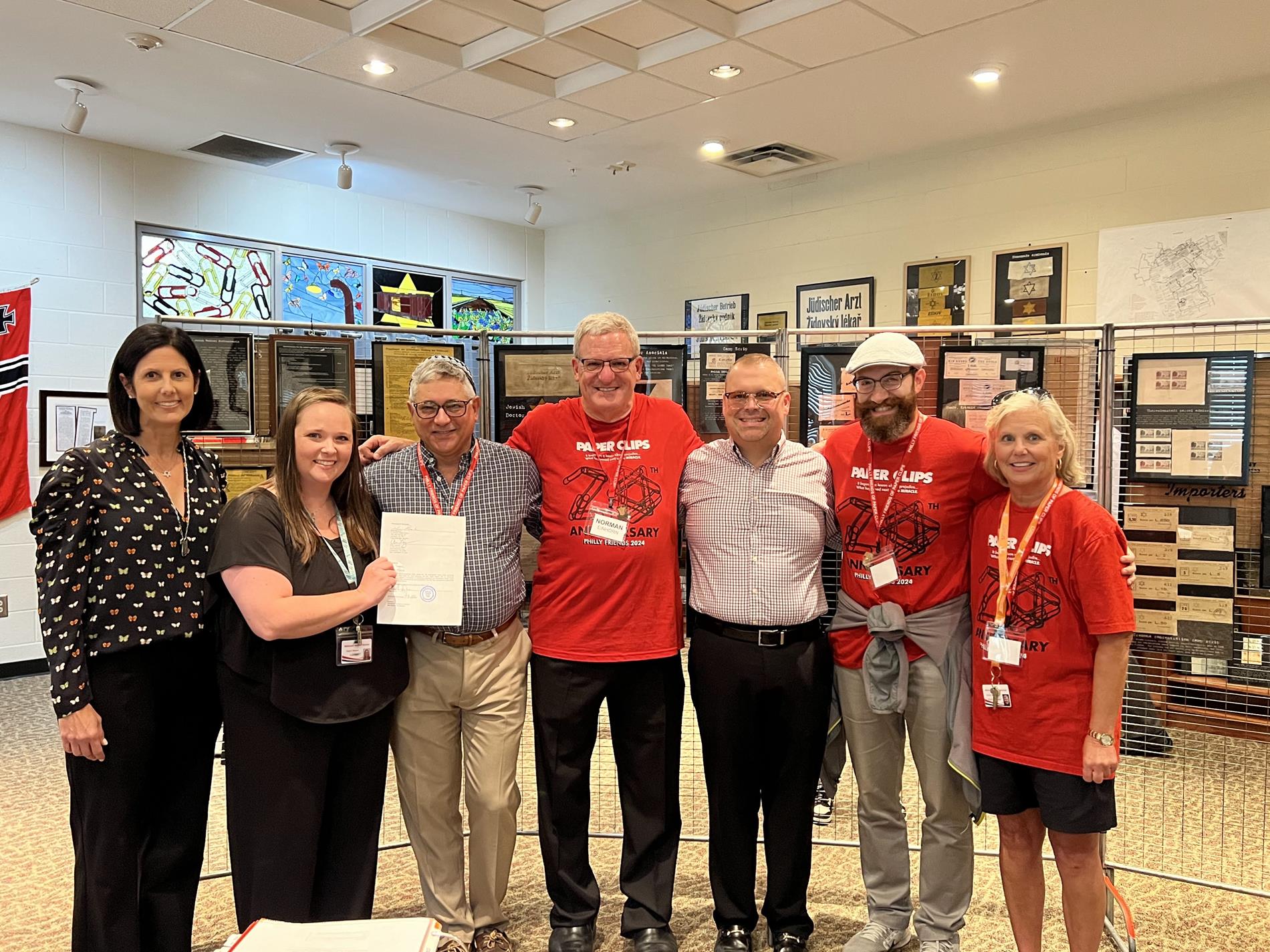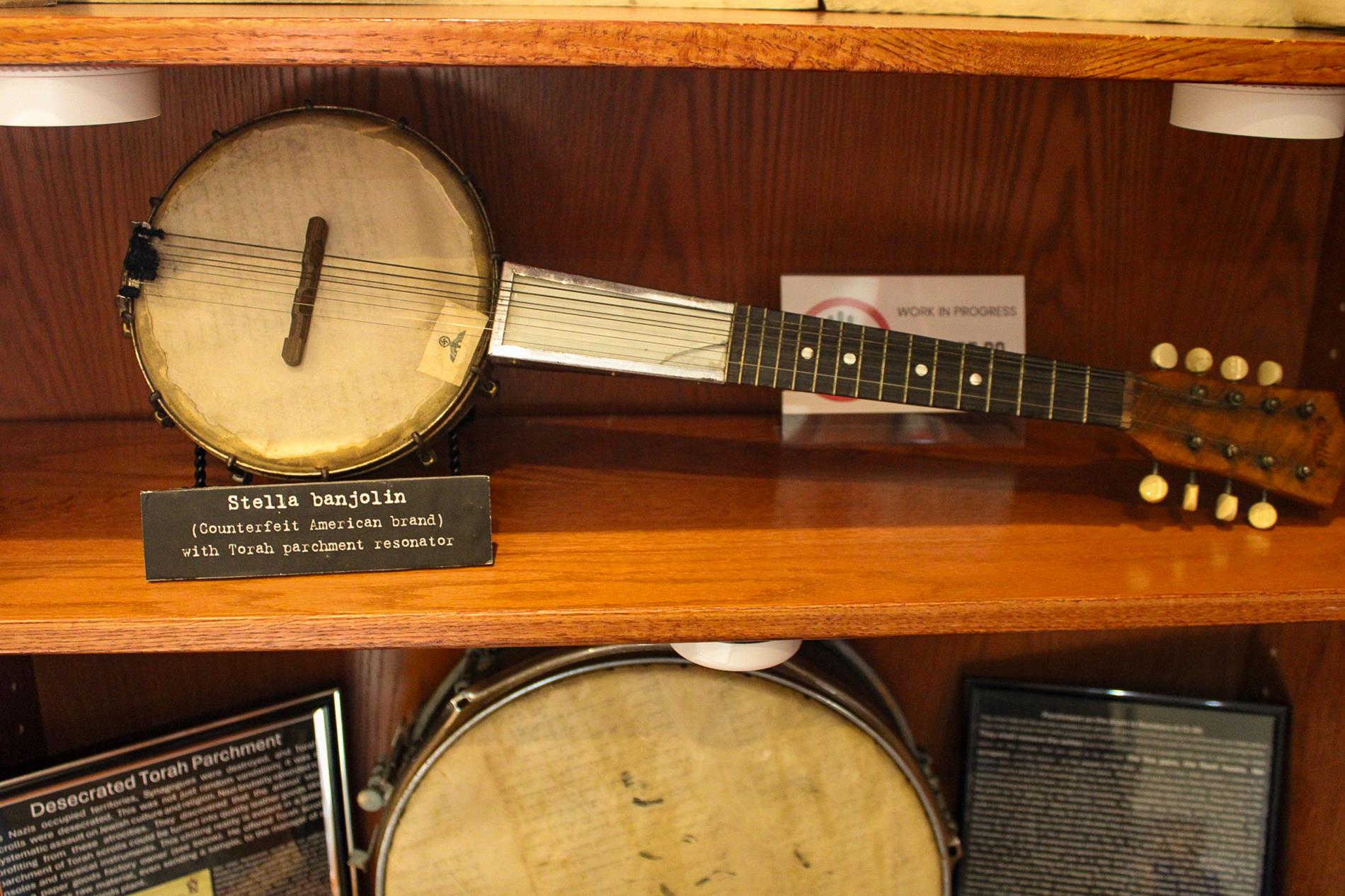Thank you for your interest in visiting! We are excited to welcome you to the Children’s Holocaust Memorial.
Guided Tours Schedule
We offer student-led guided tours for $2 per person. Tour dates must be booked 7 days in advance. Please note the following schedule:
For groups larger than 20:
September to mid-April: Guided tours are available every Friday, from 9:00 to 10:30 AM CST. Friday tours fill quickly, so please plan accordingly.
For groups smaller than 20 and families:
September to mid-April: Guided in-person tours are offered on Mondays and Wednesdays from 8:30-9:30 AM CST, but are subject to availability depending on scheduled school activities. Zoom tours will be offered during the spring semester (January to mid-April).
Zoom tours:
- January to mid-April: Zoom tours are subject to availability depending on scheduled school activities, and are offered from 8:00-9:00 AM CST.
For any visitors:
Mid-April to May: Guided tours are limited, due to end-of-the-year celebrations.
June to July: Guided tours are subject to our summer office hours.
August: We will be closed for maintenance of the railcar and artifacts collection, and training of student tour guides.
Security Protocols
Please remember that we are a school campus. Safety is our top priority. To ensure the safety and enjoyment of all our visitors, we have implemented a few important updates regarding security protocols and our tour schedule. Please be aware of the following security protocols:
Driver’s License Required: All visitors (except students) must bring a valid driver’s license for identification. It will be scanned at the office upon arrival, and everyone (students included) must sign in before entry. Please arrive 15 minutes early to allow enough time for this process.
No Self-Guided Tours: For enhanced security and a more immersive experience, we are currently not offering self-guided tours, or key access during non-school hours. All visitors must join a guided tour to access the facility.
We look forward to seeing our visitors. Thank you for your understanding and cooperation as we continue to prioritize the security of everyone on our campus.
Booking a Tour
In 1998 Whitwell Middle School eighth-grade students began an after-school study of the Holocaust. The goal was for students to learn the importance of respecting different cultures while understanding the effects of intolerance. As the study progressed, students learned the Nazis exterminated six million Jews. The sheer number overwhelmed students; six million was not a number the students could even begin to grasp.
Students asked Sandra Roberts and David Smith about collecting something to show the enormity of this number. Principal Linda M. Hooper permitted the students to begin a collection IF they could find something to collect that would have meaning to the project. After some research, the students decided to collect paper clips after discovering Joseph Valler; a Norwegian Jew credited with inventing the paper clip. Norwegians wore paperclips on their lapels as a silent protest against Nazi occupation in WWII.
Students began bringing in paper clips. Letters were written to famous people asking for paper clips and stories of why people sent the paper clips. Over 30 thousand letters and over 30 million paper clips have been sent to Whitwell Middle School. Students have counted and cataloged each letter and paper clip, now known as the "Children's Holocaust Memorial." The Memorial contains 11 million paper clips housed in an authentic German transport car honoring the lives of all people murdered by the Nazis. Another eleven million paper clips are included in a monument honoring the children of the Holocaust. All letters, documents, books, and artifacts are displayed in the school's Children's Holocaust Memorial Artifact Library.
The students, staff, and community of Whitwell Middle School have transformed the car from a death car into a symbol of life, honoring the lives of those murdered by the Nazis. For generations of Whitwell students, a paper clip will never again be just a paper clip. Instead, the paper clip is a reminder of the importance of perseverance, empathy, tolerance, and understanding.



